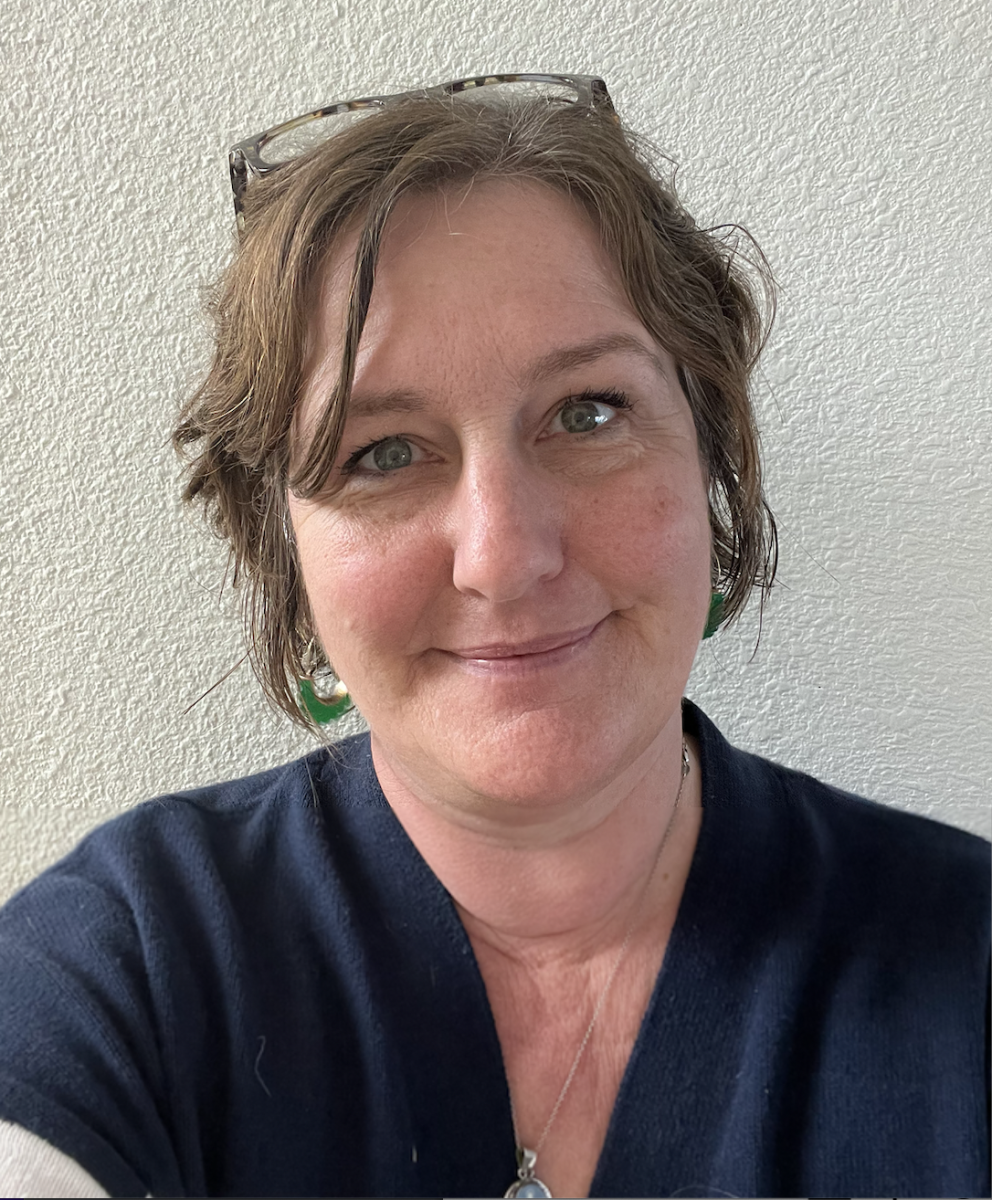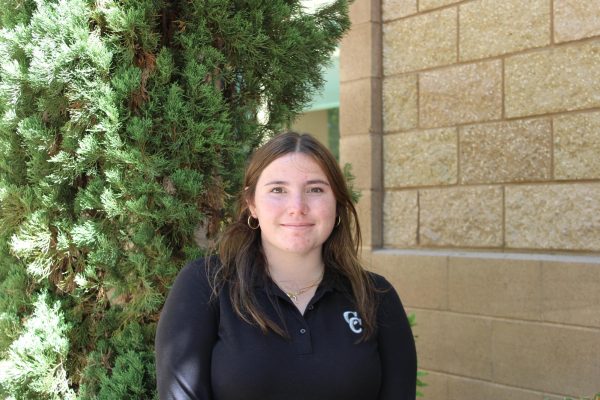As any Cathedral Catholic Student knows, there’s a certain risk you can take when selecting courses freshman year. A risk so daunting it comes with an explicit warning during syllabus week, and so rewarding it calls so many students to take an even bigger one Junior year. That risk is taking Mrs Lopatka’s Freshman Honors Biology class, and in hindsight any student can attest that taking that “risk” was one of the best course decisions they ever could have made, specifically because of the instructor herself.
With experience teaching all grades from kindergarteners to graduate students, Mrs. Lopatka’s teaching style has been forged over years of experience not only in teaching but in being taught herself. Despite what her main love for the sciences may suggest, she used to want to follow a career in teaching Spanish rather than Science. Inspired by her own teacher, her love of the language grew. “I loved Spanish class, I loved the culture, I loved how the culture’s embedded in that language. I liked the passion, I loved all the art, everything about it, I mean. And it was because she was so strict,” Mrs Lopatka says.
But as any student who’s listened to a talk brought to campus by Lopatka’s Science National Honor Society knows, redirection is a gift. So when convoluted old Spanish was the first assignment on the table when she went into college she decided to make a change. “[After that] I changed into my next passion, which was biology, which was fostered by my dad, who is a career biochemist. And then also my maternal grandfather, who is a biology teacher up in the Bay Area,” says Mrs Lopatka.
In her Organic Chemistry course, she encountered a professor, Dr. Tor, who still leaves an impact on her teaching style today. After weeks of attending office hours and working through problems, the midterm was still a beast, and when she was the last student out of 400 left in the hall on exam day Dr. Tor sat down and worked through it alongside her. “What really struck me was the grace that he extended to me during midterms and finals because I really doubted myself,” Mrs. Lopatka says. As a result, she works to extend that same kind of grace to students in her own classes.
Mrs. Lopatka has worked through many grade levels, from Kindergartners, who she says were her favorite to teach because of their “real scientist” attitude, to middle schoolers down the street at Notre Dame Academy. But when a position was open here at Cathedral she was still hesitant to pursue it. With some advice from a close friend that opinion changed, “in true Mr Fiero fashion, he just had this remarkable knack of being able to tear someone down and build them up in the same sentence. He goes, don’t be dumb, you’re the smartest person I know. And I’m like, what just happened here? And he said, take the job. And so I did.”
Her first few years here were spent teaching Chemistry and APES, but her interest in Biology never faltered- rather it amplified itself when she took up the task of teaching AP Biology for the first time in a year where everything had changed for education as a result of the pandemic. “I remember looking through the first couple of FRQs, and it was questions that I’d never seen before. my son had just taken it (…) and I remember turning to my son and literally crying to him and I was like, I’m not smart enough to teach this class and he said, ‘mama, you can do it’” and so she did it. The challenges caused by the hybrid learning system Cathedral was working with at the time completely changed the landscape as well. Through this struggle came some of the unique techniques she employs in classes today.
“I had no idea if the kids were taking it open book, open notes, open friend. I thought to myself, if everyone gets A’s, then oh well. And we’ll see whether or not they were really learning because I’ll see it in my pass rate”. As AP scores release day inched closer she was eager to see if that trust would pay off. “I think it was 43 of my 46 to sit and take the national exam. And that year I got a 91% pass rate. So the system worked.” In the same way that those original students ‘possibly’ used notes during their exams, students in her Honors/AP biology classes are still encouraged to use as many handwritten notes as they can for every unit test. As contradictory as that strategy may seem, it’s part of what earns her an unheard of AP exam pass rate of 95%, 78% of that being 4’s and 5’s. Compare that with the national pass rate of 64% and it’s clear that these strategies work.
Alongside that, hard, sometimes time-intensive, work is one of the pillars of her class. In her eyes though, what counts as much as this hard work is being a well developed and rounded person. “I would really encourage kids to do something that they’re passionate about, but then also have multifacets because today you kind of need to be a little bit of a, I would call a Renaissance man or Renaissance person”. Knowing not only how to memorize something but also put it into practice is useful for more than just AP exams. It’s “that you have more than just I can read a biology book, but that you might incorporate your artistic part of yourself as a part of the skill set that you would be wanting to promote to a potential employer.”
As someone who’s welcomed change throughout her career, she urges students to not be “afraid to pivot” and be open to doing things that might change their perspective. Going into an adult world is daunting, but what we take from our education, not only what our transcripts say, is what will really change the course.
With all that change she advises students most of all to be, “Aggressive pursuers of the truth. Even if it’s not fashionable, even if it’s out of style, please do that.”
“In James, in that tiny little chapter, which is my favorite book of the Bible, it talks about being tossed around the ocean. And if you don’t have faith, then you’re just gonna get tossed around. But if you have faith, then you’ll smooth sail.” Setting that course and braving those waters is something that requires a lot of faith, but it’s also something that requires a lot of strength and knowledge bestowed upon someone who taught them the way.






















































